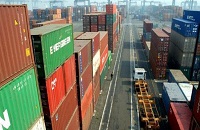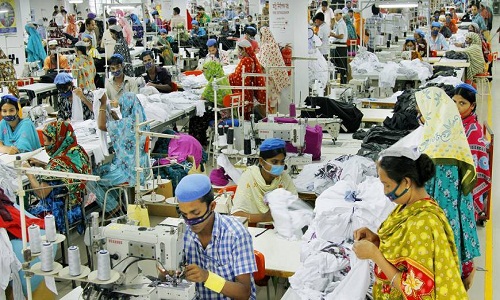"For long, ‘Asian Tigers’ typically referred to Hong Kong, Singapore, South Korea and Taiwan. The four countries experienced rapid growth between the 1960s and 1990s. But now Bangladesh is emerging strong, as the World Economic Forum pointed out. The Bangladesh economy has been one of the top performers in Asia over the past decade, averaging annual growth of more than 6 per cent.

For long, ‘Asian Tigers’ typically referred to Hong Kong, Singapore, South Korea and Taiwan. The four countries experienced rapid growth between the 1960s and 1990s. But now Bangladesh is emerging strong, as the World Economic Forum pointed out. The Bangladesh economy has been one of the top performers in Asia over the past decade, averaging annual growth of more than 6 per cent. Much like Hong Kong, Singapore, South Korea and Taiwan during the industrialisation of their economies, most of the growth that Bangladesh has experienced has come from garment exports, which the CIA World Factbook says accounts for more than 80 per cent of its exports.

Gareth Leather and Krystal Tan, Asia economists, Capital Economics, wrote Bangladesh has picked up about two - thirds of China's low-end manufacturing market share in Europe. But if Bangladesh is to reach the government's ambitious growth target of 8 per cent a year by 2020, it is essential that it starts to diversify out of the garment trade into other sectors, such as electronics and other consumer durables, where there is more scope to add value.
Bangladesh reigning high
Hasnain Malik, Head – Frontier Markets Equity Strategy, MENA and South Asia Research, Exotix Partners, says the market is being powered higher by earnings growth, local interest in equities, and increasing foreign investor interest. Malik believes there is a lot to like about the market's fundamentals: Domestic political stability; geopolitical support from regional powers China and India; macroeconomic growth and currency stability; fast-paced urban growth and extreme population density; and almost all of the 20 biggest publicly traded companies offer direct exposure to Bangladesh's domestic economy.
Where the country is lagging
In order to diversify out of the garment trade, Bangladesh must do two things, say experts. Poor infrastructure makes it difficult to transport goods across the country. Additionally, more than 20 per cent of the population of more than 156 million (about 31 million) aren't connected to the power grid, and companies often have to use their own back-up power generators because of the high susceptibility to blackouts. Those factors, combined with high levels of corruption, make Bangladesh one of the hardest places in the world to conduct business. According to Capital Economics, a lot needs to be done on reducing corruption, simplifying customs procedures, making land acquisition easier, improving private sector companies’ access to credit and making the security situation more stable.
Among the measures the government is planning to introduce include removing red-tape to expedite the process of starting a business (to seven days instead of 19.5 days), issuing construction permits within 60 days (instead of the current 278 days) and reducing the time it takes for a company to be connected to the national grid to 28 days (compared with 404 days at present). There are also plans to simplify property registration, enhance contract enforcement, streamline cross- border trade procedures under a World Bank- sponsored agenda, and digitise tax payments to improve collection. Progress on these fronts would increase Bangladesh’s appeal as an investment destination.












